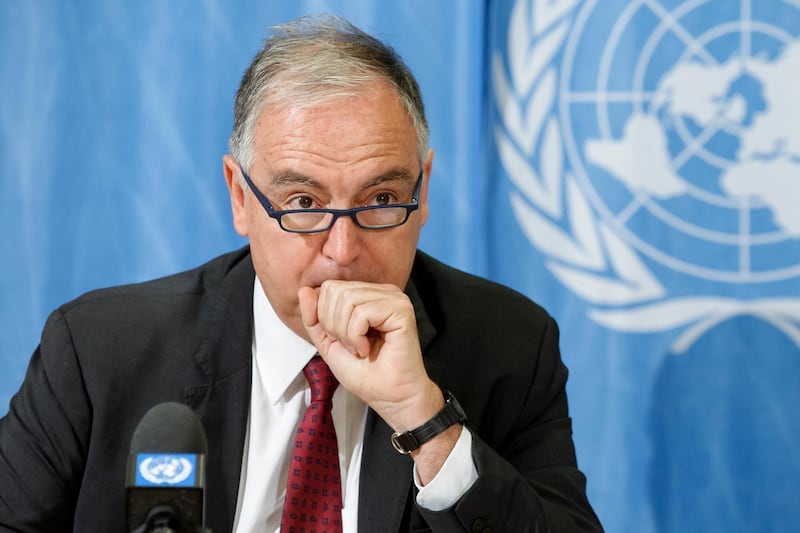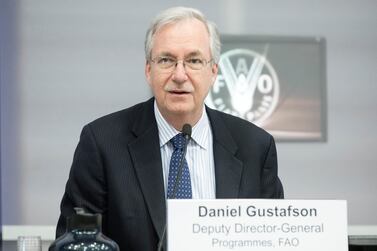Discussions on protection assistance in Syria took the front stage at the Brussels III conference, as the United Nations and its partners discussed how to provide life-saving aid and support to millions of people inside the war-torn country.
While the European Union, the largest aid donor to Syria, is expected to renew its financial, humanitarian and political commitments on Thursday, human rights advocates voiced concern over whether the international community can truly deliver protection as talks of return gather steam.
Panos Moumtzis, Regional Humanitarian Coordinator for the Syria Crisis at the United Nations, said the ability of the UN and its partners to negotiate access to areas where people are in need of assistance had improved in 2018 and is expected to further improve in 2019.
The International Organisation for Migration (IOM) estimated that nearly 1.3 million Syrians, mostly internally displaced, returned home in 2018, but also that 1.4 million were newly displaced in the same period.
Speaking of those who returned, Mr Moumtzis said the number was likely to increase this year. “The government of Syria [must also] take a number of steps to guarantee the protection of citizens in all locations,” the UN representatives said as part of the conference’s “Days of Dialogue.”
Corinne Woods, Director of Communications at the World Food Programme, highlighted the WFP’s efforts to be present at distribution sites – which the organisation defines as “protection by presence” – and the establishment of a hotline to report abuses.
All humanitarian organisations admitted that access to Syrian communities – especially for protection activities – was still a major difficulty but expressed hope that new opportunities for intervention would open up.
Some Syrian and regional representatives, however, were sceptical the situation would stabilise enough to guarantee greater protection and more returns.
Anwar Al Bunni, Executive Director at the Syrian Centre for Legal Studies and Research reminded the representatives of international bodies of the previous failed negotiations with the Syrian government.
“Many people went back to Daraa and Duma to do reconciliation, the regime killed and arrested them,” he said.
"You couldn't and you will not be able to protect anyone who goes back to Syria," he said, addressing UN representatives and the broader international community.
Mr Al Bunni said talks of return were nothing but “propaganda” and that the Syrian people would only go back when they see concrete change on behalf of President Bashar Al Assad's regime.
Under Syrian law, Mr Al Assad and his military have full immunity from any crime and few believe the United Nations diplomatic push led by the newly appointed UN envoy for Syria Geir Pedersen will be able to change this.
But “without accountability this, any political solution will mean making a deal with the criminals,” and this will not yield long-lasting peace, Mr Bunni said.
Wadih Al Asmar, co-founder and president of the Lebanese Centre for Human Rights (CLDH), said that talking about return is not possible at a time in which there is no independent mechanism to effectively verify what happens to those Syrians who go back to their country.
"[We need to] make sure that in Syria people can benefit from legal protection, and this is not the case today," Mr Al Asmar told The National. "We are asking for Syria to respect the international agreements it has signed."
“Protection means protection of the law,” he said.






